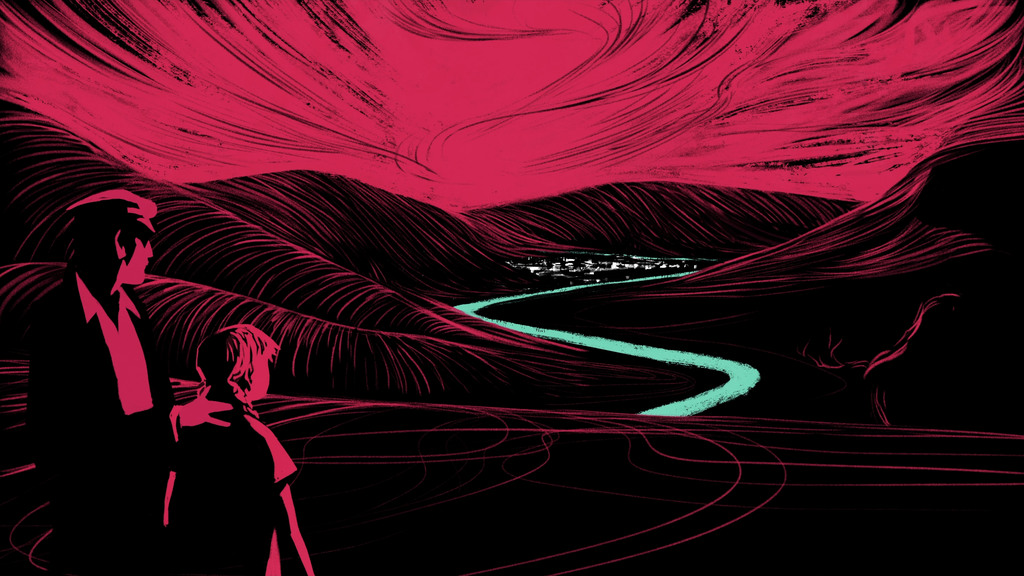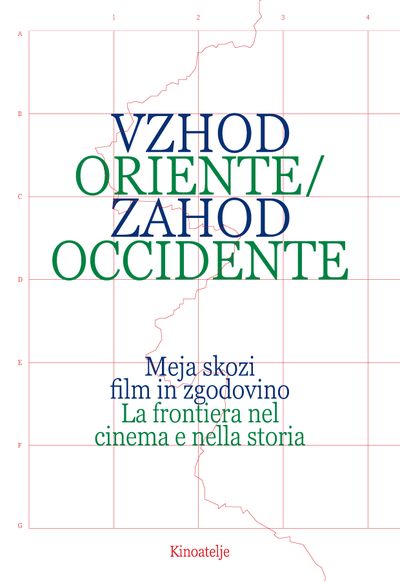Catalogue and Screenings of the Project Oriente Vzhod / Occidente Zahod


On Friday, 5 September 2025, at 11:00, at Café Maks in Nova Gorica, within the framework of the Mesto knjige (City of Books) festival, the catalogue Oriente Vzhod / Occidente Zahod – Border Through Film and History will be presented. The event is part of the “café matinées” series, which offers relaxed yet in-depth encounters with authors, thinkers, and creators.
The publication to be presented is much more than a catalogue of the retrospective – it is, in fact, a book that transcends the mere documentation of a film programme. It brings together essays by historians, philosophers, film theorists, and filmmakers, who, through precise analyses and reflections, open up questions about the film heritage shared between Italy and Slovenia. Oriente Vzhod / Occidente Zahod is an intellectual and cultural crossroads for reflecting on the role of cinema in shaping the social and historical memory of the cross-border region. The publication not only accompanies the retrospective but enriches it with a deeper understanding of film art and its impact on collective memory.
In the evening, a cinematic highlight will follow: at 20:00 in Vrh (San Michele del Carso), the SočaTravelling Cinema will appear at this location for the first time, with a screening of the cult film On Our Own Land (1948) by director France Štiglic, the first Slovenian feature film. The film is also part of the retrospective Oriente Vzhod / Occidente Zahod – The Border Through Film and History, accompanied by the above-mentioned publication. The screening is also part of the programme marking the 80th anniversary of liberation, which the Slovenian Cultural and Economic Union dedicates to the values of freedom, anti-fascism, and the culture of resistance under the slogan The Culture of Liberation – The Liberation of Culture.
The event is organised by Kinoatelje in cooperation with SKRD Danica and is part of a broader project organised by the association from Vrh under the patronage of the Federation of Slovenian Cultural Associations. In case of bad weather, the screening will be moved indoors. All events are free of charge and open to both Slovenian and Italian audiences.
On Wednesday, 10 September 2025, at 18:30, the catalogue Oriente Vzhod / Occidente Zahod – The Border Through Film and History will be presented in Trieste, at the Ariston Cinema, followed by a screening of The Closest Elsewhere – A Journey Through Slovenia (2017) by Elisabetta Sgarbi. On Friday, 12 September 2025, the presentation will take place at the Slovenian Cinematheque in Ljubljana, where at 18:00 the event will be complemented by a screening of Sgarbi’s The Closest Elsewhere – A Journey Through Slovenia (2017) in the Silvan Furlan Hall.
Announcements/
Retrospective on the Move: The First Cross-Border Waypoints of Our Film Journey
18. 07. 2025Retrospective Oriente Vzhod / Occidente Zahod – Border Through Film and History, part of the official programme of the European Capital of Culture GO! 2025, launched its international tour in the first half of 2025. By July, it had visited eight countries and presented 31 films across 54 screenings, ranging from classics of Slovenian and Italian cinema to contemporary festival highlights, documentary essays and animated films.
Filmska umetnost kot orodje preseganja meja
09. 04. 2025Nekatere meje so vidne, druge nevidne. Nekatere ločujejo, druge združujejo. Obmejna regija med Slovenijo in Italijo je bila stoletja prizorišče prepletanja kultur, zgodovinskih preobratov in človeških usod. Lahko zgodovino pogledamo skozi film in jo razumemo skozi umetnost? Retrospektiva Oriente Vzhod / Occidente Zahod – Meja skozi film in zgodovino, ki jo Kinoateje organizira v sodelovanju s številnimi partnerji in je del uradnega programa Evropske prestolnice kulture GO! 2025 ponuja prav to – potovanje skozi filmske podobe, ki raziskujejo življenje na robu in središču Evrope hkrati.
Popotnica retrospektivi: Stojan Pelko in Vlado Škafar
09. 04. 2025Zdaj, ko je prestolnično leto že v polnem teku, je mogoče nekoliko lažje primerjati posamezne discipline oziroma sklope programov. Upam si reči, da je Filmsko mesto, kakor smo poimenovali cel sklop filmsko-kinematografsko-avdio-vizualno-animiranih projektov eden tistih, ki dobesedno hkrati producira rezultate doma in na tujem – pri čemer doma pomeni ne le v goriškem somestju in po Sloveniji, ampak po celi Evropi.

